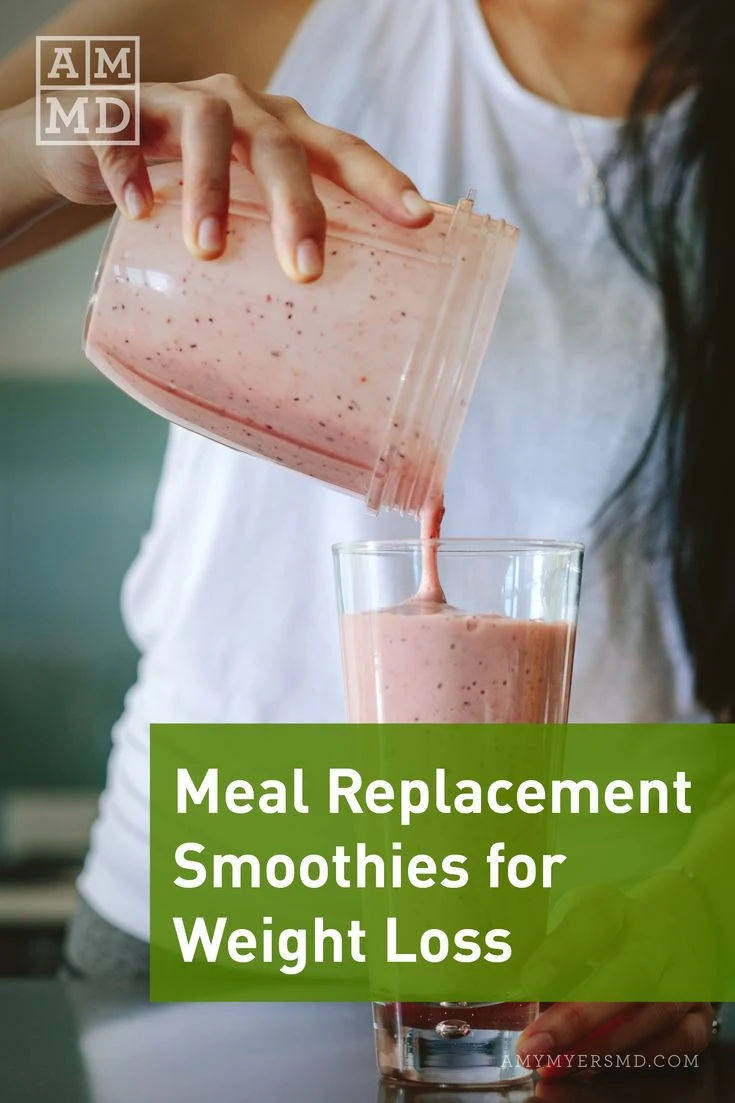Meal Replacement Shakes for Weight Loss: A Comprehensive Guide to Achieving Your Goals
In the quest for effective weight loss strategies, meal replacement shakes have gained significant popularity. These convenient and easy-to-prepare shakes offer a practical solution for individuals seeking to shed pounds without compromising their nutritional needs. This article aims to provide a comprehensive guide to using meal replacement shakes for weight loss, including their benefits, potential drawbacks, and tips for incorporating them into your weight loss journey.
Source ImageI. Understanding Meal Replacement Shakes
1. What are Meal Replacement Shakes?
Meal replacement shakes are specially formulated beverages designed to replace a whole meal while providing essential nutrients. They typically contain a balance of macronutrients (proteins, carbohydrates, and fats), vitamins, minerals, and fiber.
2. How Do Meal Replacement Shakes Aid in Weight Loss?
Meal replacement shakes can contribute to weight loss through various mechanisms:
a) Caloric Control: By replacing a high-calorie meal with a lower-calorie shake, you can create a calorie deficit, which is essential for weight loss.
b) Portion Control: Shakes offer pre-portioned servings, helping you avoid overeating and manage your calorie intake effectively.
c) Nutritional Balance: Meal replacement shakes are designed to provide a well-balanced mix of nutrients, ensuring that your body receives the necessary vitamins and minerals while on a calorie-restricted diet.
II. The Benefits of Meal Replacement Shakes for Weight Loss
1. Convenience and Time-Saving
One of the primary advantages of meal replacement shakes is their convenience. They are quick to prepare, requiring minimal time and effort, making them an excellent option for busy individuals.
2. Portion and Calorie Control
Weight loss often relies on portion and calorie control. Meal replacement shakes provide a pre-measured serving size with a predetermined calorie count, eliminating the need for calorie counting or portion measuring.
3. Balanced Nutrition
Meal replacement shakes are formulated to provide a balanced blend of proteins, carbohydrates, fats, vitamins, and minerals. This ensures that your body receives the necessary nutrients even when on a calorie-restricted diet.
4. Structured Eating
Following a structured eating plan can aid in weight loss by reducing impulsive food choices and promoting healthier habits. Meal replacement shakes offer a structured approach to mealtime, making it easier to stick to your weight loss goals.
III. Potential Drawbacks of Meal Replacement Shakes
1. Sustainability and Long-Term Success
While meal replacement shakes can be effective for short-term weight loss, it's essential to consider their long-term sustainability. Building healthy eating habits and learning portion control are crucial for lasting success.
2. Limited Dietary Variety
Relying solely on meal replacement shakes can result in a lack of dietary variety. Whole foods offer a broader range of nutrients that may be missing in a shake, so it's important to incorporate them into your diet when possible.
3. Emotional and Social Factors
Food plays a significant role in our emotional well-being and social interactions. Meal replacement shakes may not provide the same satisfaction as a regular meal, potentially leading to feelings of deprivation or isolation in social settings.
IV. Incorporating Meal Replacement Shakes into Your Weight Loss Journey
1. Consult a Healthcare Professional
Before embarking on any weight loss plan, it is advisable to consult with a healthcare professional or registered dietitian. They can assess your specific needs, health conditions, and help you determine if meal replacement shakes are suitable for you.
2. Choose High-Quality Shakes
Select meal replacement shakes from reputable brands that provide adequate protein, fiber, vitamins, and minerals. Avoid shakes high in added sugars and artificial ingredients.
3. Use Meal Replacement Shakes as Part of a Balanced Diet
Meal replacement shakes should not replace all your meals indefinitely.
It's important to use them as part of a balanced diet. Incorporate whole foods such as fruits, vegetables, lean proteins, and whole grains alongside the shakes to ensure you're getting a wide range of nutrients.
4. Monitor Portion Sizes
Even though meal replacement shakes are pre-portioned, it's still crucial to pay attention to portion sizes for any additional foods you consume. Be mindful of your overall calorie intake to maintain a calorie deficit for weight loss.
5. Gradual Transition and Long-Term Strategy
If you decide to incorporate meal replacement shakes into your weight loss journey, consider a gradual transition. Start by replacing one meal a day with a shake and gradually increase to two meals if desired. As you reach your weight loss goals, focus on transitioning to a sustainable long-term eating plan that includes whole foods.
6. Stay Hydrated
Remember to drink plenty of water throughout the day, even when using meal replacement shakes. Hydration is essential for overall health and can help with digestion and satiety.
Source ImageV. Frequently Asked Questions (FAQs)
Q1: Can meal replacement shakes be used as a long-term weight loss solution?
While meal replacement shakes can be effective for short-term weight loss, they may not be sustainable as a long-term solution. It's important to develop healthy eating habits and incorporate a variety of whole foods for overall nutrition.
Q2: Are meal replacement shakes suitable for everyone?
Meal replacement shakes can be a convenient option for many individuals, but it's important to consult with a healthcare professional before starting any weight loss plan, especially if you have specific dietary requirements, medical conditions, or take medications.
Q3: Can meal replacement shakes provide all the necessary nutrients?
Meal replacement shakes are designed to provide a balanced mix of nutrients. However, they may not offer the same level of phytonutrients, antioxidants, and dietary fiber found in whole foods. It's important to incorporate whole foods into your diet whenever possible.
Q4: Are meal replacement shakes only for weight loss?
While meal replacement shakes are often associated with weight loss, they can also be used as a convenient and nutritious option for individuals with busy lifestyles or as a post-workout recovery option. It's important to adapt their use to your specific needs and goals.
Conclusion
Meal replacement shakes can be a valuable tool in your weight loss journey, providing convenience, portion control, and balanced nutrition. They can help create a calorie deficit and support weight loss when used as part of a well-rounded, long-term approach that includes whole foods and healthy eating habits. However, it's crucial to consider their potential drawbacks, such as limited dietary variety and long-term sustainability. Consulting with a healthcare professional is recommended to ensure their suitability for your individual needs. Remember, sustainable weight loss involves a holistic approach that considers lifestyle changes, exercise, and overall dietary patterns.
In conclusion, meal replacement shakes can be an effective component of a weight loss strategy. They offer convenience, portion control, and balanced nutrition, making them a practical choice for individuals looking to shed pounds. However, it's important to approach their use with a long-term perspective and consider their potential limitations.
While meal replacement shakes can help create a calorie deficit and jumpstart weight loss, they should not replace all meals indefinitely. Incorporating whole foods into your diet is essential to ensure you're receiving a wide range of nutrients and dietary variety. Building healthy eating habits and learning portion control are key factors in achieving sustainable weight loss.
Additionally, it's crucial to consult with a healthcare professional or registered dietitian before incorporating meal replacement shakes into your weight loss journey. They can provide personalized guidance, assess your specific needs, and help you develop a comprehensive plan that considers your overall health and well-being.
Remember, weight loss is a multifaceted process that goes beyond just replacing meals with shakes. Regular physical activity, managing stress levels, and prioritizing sleep are equally important in achieving and maintaining a healthy weight. Be patient, stay consistent, and focus on making long-term lifestyle changes rather than relying solely on quick-fix solutions.
FAQs:
Q1: Can meal replacement shakes be used as a sole source of nutrition?
Meal replacement shakes are not intended to be the sole source of nutrition. While they provide essential nutrients, they lack certain components found in whole foods, such as fiber and phytonutrients. It's important to incorporate a variety of whole foods for a well-rounded diet.
Q2: Do meal replacement shakes have side effects?
Generally, meal replacement shakes are safe for consumption. However, some individuals may experience digestive issues, such as bloating or gas, due to the ingredients or their specific tolerance. It's recommended to choose high-quality shakes and monitor your body's response.
Q3: Can meal replacement shakes help with weight maintenance after reaching goals?
Meal replacement shakes can be a convenient option for weight maintenance after reaching your goals. They can serve as a healthy snack or occasional meal replacement to support calorie control and provide balanced nutrition. However, it's important to focus on whole foods and a sustainable eating plan for long-term weight maintenance.
Q4: Are homemade meal replacement shakes a good alternative?
Homemade meal replacement shakes can be a viable option if you prefer to have control over the ingredients and nutritional content. However, it's essential to ensure they provide a balanced mix of macronutrients and essential vitamins and minerals.
Incorporating meal replacement shakes into your weight loss journey can be a beneficial strategy, but it's important to approach it as part of a holistic and sustainable lifestyle change. By combining meal replacements with whole foods, regular physical activity, and a well-rounded approach to health and wellness, you can achieve your weight loss goals and maintain a healthy lifestyle in the long run.











